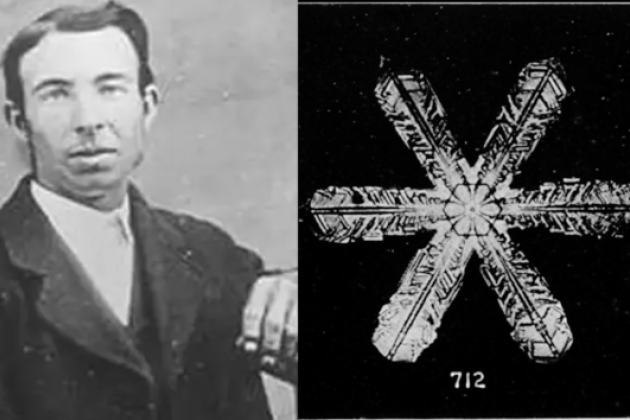| 1:00–1:15 P.M. | Welcome and Introduction | |
| Welcome: | John Raisian, Hoover Institution | |
| Introduction: | David Brady, Hoover Institution | |
| 1:15–2:30 P.M. | What We Did: The 1980 and 1988 Transitions | |
| Panelists: | Richard V. Allen, Hoover Institution Annelise G. Anderson, Hoover Institution Martin Anderson, Hoover Institution Jack H. Watson Jr. |
|
| Moderator: | Thomas Mann, Brookings Institution | |
| 2:30–3:00 P.M. | Break | |
| 3:00–4:15 P.M. | What We Learned: What Went Right, What Went Wrong | |
| Panelists: | David Brady, Hoover Institution Edwin Meese III, Hoover Institution Harrison Wellford, Latham & Watkins |
|
| Moderator: | Norman J. Ornstein, American Enterprise Institute | |
 |
| From left, Hoover senior fellow David Brady, Harrison Wellford, Latham & Watkins law firm, and Hoover distinguished visiting fellow Edwin Meese III.
|
TRANSITION TO GOVERNING PROJECT
The purpose of the Transition to Governing Project is to facilitate effective progression from campaigning to governing at the national level. Funded by The Pew Charitable Trusts, the project is led by the American Enterprise Institute (AEI) in conjunction with the Brookings Institution and the Hoover Institution. It is directed by Norman Ornstein, resident scholar at AEI, Thomas Mann, director of governmental studies at the Brookings Institution, and David Brady, senior fellow at the Hoover Institution.
PRESIDENTIAL TRANSITIONS PANELISTS
Annelise G. Anderson is a research fellow at the Hoover Institution. In 1980, she served as senior policy adviser to the presidential campaign of Ronald Reagan and from 1981–1983 as Associate Director for Economics and Government with the Office of Management and Budget. She is the editor of Political Money: Deregulating American Politics.
Richard V. Allen is a senior fellow at the Hoover Institution and chairman of the Heritage Foundation's Asian Studies Center Advisory Council. He served as assistant to the President for National Security Affairs during the first year of the Reagan Administration. He is currently serving as president of the Richard V. Allen Company, a Washington-based consulting firm.
Martin Anderson is the Keith and Jan Hurlbut Senior Fellow at the Hoover Institution. He served as assistant to President Reagan for Policy Development from 1981–1982; he is also the author of Revolution: The Reagan Legacy.
David Brady is a Hoover senior fellow, the Bowen and Janice Arthur McCoy Professor of Political Science, Business and the Changing Environment, and Ethics in the Stanford Graduate School of Business, and professor of political science in the School of Humanities and Sciences at Stanford University. He is author of Revolving Gridlock: Politics and Policy from Carter to Clinton.
Thomas Mann is the W. Averell Harriman Senior Fellow in American Governance and former director of Governmental Studies at the Brookings Institution. Mann served as executive director of the American Political Science Association from 1981–1987. He is the coauthor of Vital Statistics on Congress, 1999–2000 with Norman J. Ornstein and Michael Malbin.
Edwin Meese III is a distinguished visiting fellow at the Hoover Institution. He served as the seventy-fifth attorney general of the United States from February 1985 to August 1988. His memoirs were published in the 1992 volume With Reagan: The Inside Story.
Norman J. Ornstein, American Enterprise Institute resident scholar, serves as an election analyst for CBS news and as the director of the Transition to Governing Project. One of his most recent books includes Lessons and Legacies: Farewell Addresses From the U.S. Senate.
Jack H. Watson Jr., former Chief Legal Strategist of Monsanto Company, served as Assistant to the President for Intergovernmental Affairs, Secretary to the Cabinet, and White House Chief of Staff during the Carter Administration.
Harrison Wellford is a partner in the Washington, D.C. office of the international law firm of Latham & Watkins. Wellford served as White House transition advisor to President-elect Clinton in 1992 and from 1977–1981 he was the Executive Associate Director of the Office of Management and Budget in the Executive Office of the President.
HANDING OVER THE BATON By David Brady and Morris Fiorina One of the likely casualties of the current presidential imbroglio is a smooth and effective presidential transition. A botched or hurried transition, in turn, will undermine the effectiveness of the new administration. A panel of former transition team members met recently to determine what experience could tell the new president and his staff. The main conclusion: Not all transitions are created equal. In fact, transitions have met with various levels of success. Our participants agreed that President Reagan's transition from the Carter administration was the most successful of the modern era, and was made so by clear intentions and delegation of authority. The Reagan-to-Bush transition was less successful, largely because of intraparty rivalries between incoming and outgoing regimes; the same sort of conflict that may occur if Vice President Gore eventually is declared the winner of this election. President Clinton’s transition from President Bush was also difficult, not only because of the lateness with which his staff approached the task, but also because of President Clinton’s failure to shift out of campaign mode immediately after his victory. The key is to realize just how big a job a presidential transition is. Between election and inauguration, an incoming president must make about 3,500 high-level executive branch appointments; nearly 50 a day. In addition, each appointee must undergo an extensive background and security check via a system whose complexity has historically been the source of months of delays. The transition is further complicated by the difficulty of capturing the institutional memory of the White House before those who carry it in their heads depart for other positions. Their experience must be mined if a transition is to be successful, because the executive branch has too many nooks and crannies—and too many responsibilities—for the handoff of power to be left incomplete. Our panel agreed that these and other challenges can be met by attention to several key considerations. First, the effort must begin early. If the transition begins on the day after the election, it is too late. This year, both the Gore and Bush campaigns wisely set up extensive transition apparatus months before the election. Far from being presumptuous, this was the responsible thing to do—and given the time constraints, it is absolutely necessary. As long as the election is in doubt, both should continue to plan. Second, there must be an immediate shift from “campaign mode” to governance—a difficult move in the present context. After the election, a president-elect and his staff must switch over to the task of preparing to run the country. Governing, especially as it is practiced during a transition, is about establishing the elements of the incoming administration, setting the tone of policy and ensuring stability and continuity. During the transition, the president-elect has to reach out to members of the other party, and to the public. It is a time to shift the focus away from political conflict and toward the details of policy. Third, transition team members must understand the president’s principal goals and the major themes of the new administration. They must set priorities. Two or three goals, not a laundry list, must guide them. The first 100 days of any new administration are far more than a public relations concept. That period is when the tone of the administration is set in the mind of the nation, and when the incoming president has the best opportunity to advance his agenda with both the Congress and the public. The incoming team must plan legislative initiatives before Election Day, because such efforts take longer than the time between the vote and the inauguration—especially when there are so many other start-up tasks to be done. Fourth, team members must separate public expectations from the day-to-day work of the transition. The president-elect guides public expectations while the transition managers do the hiring and vetting. A command structure must be quickly established, and senior officials must be empowered to act on the president-elect’s behalf. While hard work begun early in the campaign goes a long way toward smoothing the process, every transition still relies to a great extent on the good will of “inside Washington” players. There is a need for statutory reform and stronger structure, but we are fortunate that our elected officials and their staffs generally conduct themselves quite responsibly during these transitions. The events of the next few weeks will test the good will of all concerned.









